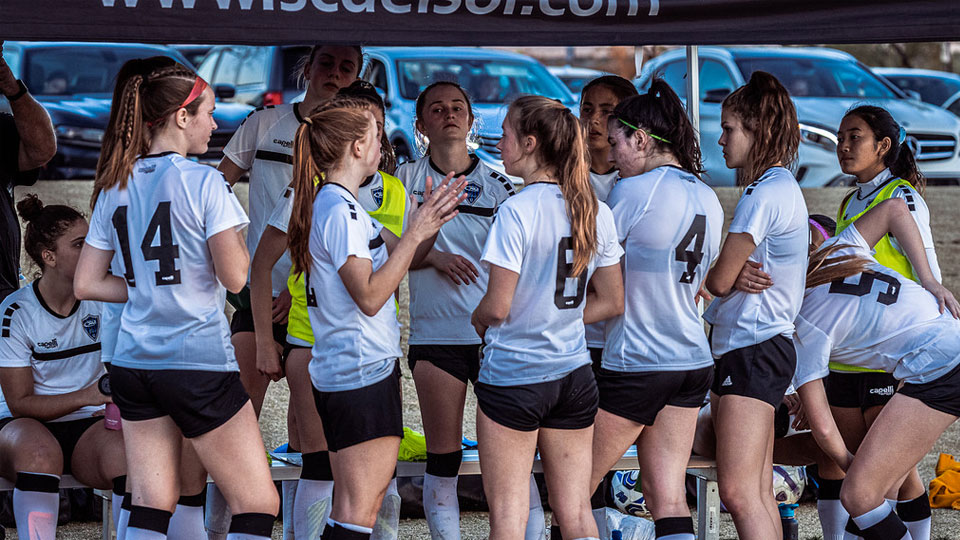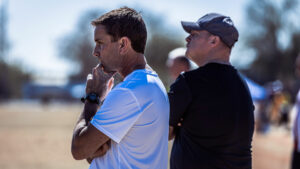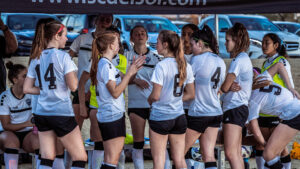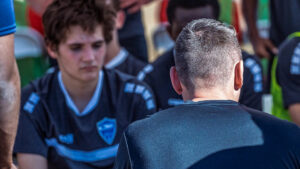
Parenting Tips For Before, During, And After Tryouts
Pablo Toledo -Rush Soccer’s Sporting Project Director- was joined by Asia Mape, Founder & CEO of ‘I Love To Watch You Play’, and discussed Dos and Don’ts for parents to help and encourage their children throughout this process
How can we help our children before, during, and after tryouts?
Simple question, important answer.
“Once I had my own kids, I started to go through the youth sports cycle, and I realised not only did I need a lot of help and guidance, but a lot of parents out there too. And they felt the same kind of ‘out of control feelings’ that I had”, commented Asia.
You can also find the full interview on The Rush Podcast Network! Check below:
Was there something that triggered ‘I Love To Watch You Play’? “I like to laugh about this. I was not a good sports parent. I still grow and learn everyday. I still make so many mistakes, it’s really hard. I thought I had everything figured out. My mindset was ‘oh, how to be the best’, I was basically going at it from this approach, which is completely counterproductive in the end, so we started ‘I Love To Watch You Play’ in 2015. We are basically a platform to help parents raise happy, healthy, successful athletes. I do it by researching, writing, interviewing, all the topics experts, athletes, newsmakers. Then, I bring all that information and share it with parents, coaches, and administrators”.
Through this introductory question, the first tip arised:
“Kids should not be treated as mini adults. And I think that a lot of us parents, with good intentions (I never try to make parents feel bad about it because I’ve been there), want to help our kids but we end up doing the opposite”, she added.
“If I can add one little thing that I do a lot in my coaching. We always say ‘you reach a point in your sporting career that you have to GET serious, but that doesn’t mean that you have to BE serious. Just take what you do seriously’”, Pablo explained.
What advice would you give for parents throughout this stressful period? “Kids are already feeling stressed, so the last thing you want to do is add stress -Asia pointed out-. You want them to feel happy, confident and prepared, not at all worrying. There’s no point in saying ‘don’t forget to X‘. You really just need to prepare them, get them there early, make sure they sleep well. Why stress them out? Why make this huge thing in the house?
If there’s any, what is the homework for parents prior to tryouts? As said above, it is key not to stress your child out. As Asia explained, “you want to create an atmosphere that is not stressful, talk to them only about things they can control: attitude, effort, making eye contact. You just want them to be at their best”.
What do we do if we notice that our child is having a negative experience during tryouts? “During tryouts, if your child is having negative experiences, or if he/she is feeling bad, because sometimes children are very hard on themselves, so parents throughout the process need to help them reframe these thoughts. You need to be continually giving them positive feedback, not holding onto bad moments, and even if they mess up during a game or tryout, let it go”.
What do we do if things don’t go well and our child doesn’t make the team? “What happens a lot of times, if a child doesn’t make the team and a parent starts criticizing the process, criticizing the coach, is that all you are really doing is minimizing their ability and their chance to grow and learn to have accountability. The main thing after the tryout is to not minimize the process, what your child just went through, and make excuses of why they didn’t make it. Failure is the greatest teacher. This was a learning process, ‘what did you learn? What do you have to do next?’. That initial hurt feeling because you just wanna solve it for their kids: ‘They didn’t know what they were doing’. That’s really counterproductive for them.
It is also important for parents not to downplay it either. This is a big deal for your children. So, if they didn’t make the team and they are not going to be with their friends, let them express their feelings and get it out. Ask them questions, encourage them, ‘What do you think happened? Let’s reflect on it’. Sometimes it can be hard, not every kid wants to talk about those situations, but we should recognize it as a hard moment and honour their feelings”.
And what if it’s the other way around, your child succeeds and his/her teammates don’t? “There is a tricky situation if your child does make the team and their friends don’t. Just be thoughtful about what the others are feeling, and remember what it feels like for all those kids who didn’t make it”.
Why is it so important for parents to encourage these aspects and respect the children’s sensations and emotions? “These tools we are talking about are not just ‘sport tools’, they are life tools. That’s not just when you are on the soccer field, but also when you have your first job interview or on your wedding day. That’s why sports are so amazing, we can practice so many different situations and scenarios in sports that are really going to be so important throughout their entire lives”.
From the parents standpoint, what are the main concerns during this stressful period? “I think almost all parents can relate to: Most of us want our kids to make the top team, so the stress is ‘are they going to make the team? Are they going to get the coach they want? Are they going to be on the same team with their friends?’, and I think a lot of times there is an aspect that relates to the child but there’s also an aspect that relates to the social life of the parent. You really create this sort of wonderful relationship with other parents and if we have kids who don’t make that team again, you can feel that you’ve been cut off. Some other times, there’s also this thinking of ‘if my kid didn’t make the top team at 9, he/she won’t make it at 10’, so you have the terrible feeling that your child is going to get left behind” and it’s not like that, development is not so linear, sometimes the best player at 9 is average at 15 or the other way around.


